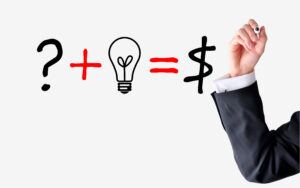Don’t Get Bit By Hidden Taxes in Retirement

Don’t Get Bit By Hidden Taxes in Retirement
Just about everyone hates taxes. They’re complicated and they often seem too high for moat taxpayers. Keeping track of the constantly changing laws and regulations can be unbearable for many, as well. So what about when you retire? Things will get a lot easier when you quit working, right? Not so fast. The fact is taxes in retirement might be even more complicated than while you’re working. For example,
• You may or may not be taxed on your Social Security benefits.
• Most withdrawals from a retirement plan come with federal income taxes, but state taxes depend on your location.
• Investment tax rates will also likely vary.
These are just a few of the things you will have to consider when you retire. So it’s best to be ready for them.
Social Security Taxes
How are Social Security taxes determined? It will depend on your combined income. Your combined income is determined by your adjusted gross income plus your non-taxable interest plus half of your Social Security benefit. Here’s how it plays out.
Single Filers
• If you have a combined income of less than $25,000 then you will not be taxed on your Social Security benefit.
• If your combined income is between $25,000 and $34,000 you could be taxed on as much as half of your SS benefits.
• If your combined income is more than $34,000 then as much as 85 percent of your SS benefits could be taxed.
Joint Filers
• Under $32,000 no tax• Between $32,000 and $44,000 up to 50 percent tax
• More than $44,000 up to 85 percent tax
To be clear you won’t lose this much of your benefit. The percentages are the amount of your benefit that will be taxed, at your regular income tax rate.
What About State Income Tax
There are 13 states that charge income tax on your social security benefits to a certain extent. There are seven states that don’t tax income, period. If you live in any of the other 30 states it will depend on several factors. Every state has different sales and property taxes, as well, so do your homework if you plan on moving in retirement.
Retirement Plan Distributions
For most retirement accounts the law requires you to start withdrawing money when you reach the age of 70½. These distributions are usually taxed at your normal tax rate. While this is not the case for everyone, for those who have saved a lot for retirement, even the minimum distribution could push them into a hire tax bracket. This could lead to an unexpected tax increase in retirement. For some, it might make sense to transfer some your IRA funds into a Roth IRA before you reach the age of 70.
Seek Help From the Pros
These are just a couple of the tax changes that can come with retirement that you should be aware of. As with any important tax decision, it’s always a good idea to meet with a tax professional and/or a financial planner to be sure you’re properly set up for the future. The fewer tax surprises you have in retirement the better.
For more updates follow GROCO on Facebook
Tell Me Your Value Equation
Every company feels like it has what it takes to make a difference in its customer’s lives. No matter what product or service they offer their clients, all companies feel like they can do it better than anyone else. So what makes one company stick out from another? Is it how much money that company…
How to Handle Tough Decisions
Everyone has to make decisions in life and many of those decisions can be very difficult to make. The same can be said for businesses. Decision makers in the business world face a lot of tough choices and some of these choices can actually make or break their companies. So how do they make tough…
Using a Tax Shelter? IRS Says Beware
People look for many different ways to save on taxes, or even to avoid paying some of the taxes they really do owe. However, despite taxpayers’ best efforts, the IRS is always on the prowl and if you’re using unscrupulous means to avoid paying taxes there is a good chance you will get caught, including…
What Is Section 1202 Stock?
The Protecting Americans From Tax Hikes Act of 2015 (PATH Act), which was signed into law late last year, finally made several temporary tax breaks permanent. Among the tax breaks included is the Small Business Stock Gains Exclusion, known as Section 1202. So what is the Small Business Stock Gain Exclusion? Section 1202 is designed…




